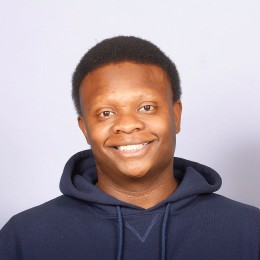
As seems customary every year, there is rebellion in occupied Palestine. Since 2000, the year of the Second Intifada, the Palestinian masses divorced from any serious direction from their political parties have taken up arms to remove European colonialism from their land.
Outgunned constantly, tempestuous youths, rural folk and underground militia groups have given their all to highlight the repressive nature of the European-Israeli occupation. For someone whose father was a guerrilla in the South West Africa People’s Organization (SWAPO) a group in Namibia formed to overthrow apartheid rule in Namibia and South Africa, and whose mother was an intimate part of the U.S popular mobilizations for a Boycott, Divestment, and Sanctions (BDS) campaign against that government, it is a tragedy Binghamton University has been so slow to follow in the case of Palestine.
The Palestinian people, bluntly, are fighting for their freedom. They ask the world not for weapons, soldiers or materials for carrying out war, but for a campaign to put economic pressure on the apartheid Israeli regime. While indeed the Israeli occupiers and Palestine Liberation Organization representatives do talk every now and then, power is skewed in the favor of Israel to the point that all the Palestinians can do at the negotiating table is say no to the horrendous terms for “peace” Israel offers. They need more support in the form of economic pressure being put on the Israeli occupying regime for the negotiations to ever go anywhere.
This is where we come in as a U.S. university where massive anti-apartheid South Africa demonstrations took place during the mid to late 1980s. Those mobilizations included boycotting corporations on campus that did business with South Africa (e.g., Mariott) and demanding that the administration building be named after Nelson Mandela — although the compromise was the auditorium in the University Union being named after him. A return to this 1980s movement is needed to support efforts to support the Palestinians.
Reflecting on the South African case is instructive here. Although popular forces within South Africa, as well as the liberation movements in exile like the African National Congress, Nelson Mandela’s party, and the Pan-Africanist Congress, Robert Sobukwe’s party, were increasingly becoming effective in their attacks on the apartheid structure, a key component to the dissolution of this oppressive Nazi-inspired white supremacist regime were the international economic, military and cultural sanctions placed on them. Economically, numerous countries and corporations refused to trade with apartheid South Africa which hurt their domestic businesses and reduced their foreign currency reserves, hindering their ability obtain goods such as oil. Militarily — although not completely successful, as the apartheid regime was able to produce much of its own weaponry and buy the rest illegally from apartheid Israel — a concerted campaign was created which made it harder for the government to obtain tear gas and other crowd-control technologies at cheap prices. Cultural sanctions, however, were perhaps the most impressive as hundreds of artists, musicians, academic institutions and sports teams refused to do business in South Africa or with any institution connected to it.
In sum, internal resistance and international pressure forced apartheid South Africa to first stop preventing Namibia from having free and fair elections (which were won by SWAPO in 1990), secure Nelson Mandela’s 1990 release from prison and, in 1994, allow free and fair elections to take place in South Africa.
It was a long and bloody conflict, but international support in particular was central to bringing majority rule to Namibia and South Africa. The same is required now as it concerns Palestine. Over the past few years, an increasing number of countries, corporations, institutions of higher learning, academic organizations and radical Black organizations have embraced BDS. This article calls for the same to happen here at Binghamton University.
The Palestinians again are on the move, and we hope this recent rebellion leads to substantive changes as they continue their long march to freedom. A luta continua — the struggle continues.
– Toivo Asheeke is a fourth-year Ph.D. candidate studying sociology


